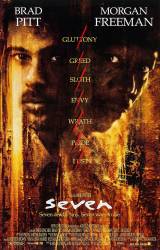
Question: When shaving their chests by the end of the movie, Mills and Somerset are joking and then Mills gets serious, says "You know...?" and then stops. What do you think he was going to say? Maybe he was going to be nice to Somerset, but then refrained himself?
Answer: I've always wondered this question as well. I think he was gonna say something along the line of "you know I haven't talked to my wife all day And that's very weird." Especially since Somerset just said be prepared for anything while transporting Doe. Speculation at best though.
When Mills and Somerset enter the station building just before John Doe gives himself up the female desk sergeant tells Mills his wife had phoned this puts Mills' wife into the mind of the viewer. When Mills says to Somerset during the chest shaving scene 'if I keep coming home late my wifes gonna think something up' is placing Traci again in the mind of the viewer. Then Mills says 'You know?' prompts the question what has happened to Traci.
Answer: Since he stands for wrath in the plot, in the said scene he was probably going to acknowledge his short-tempered nature. He doesn't and therefore he looses a chance of confession. What say?
Could be right. He certainly has explosive episodes of anger throughout the film. He may, just for an instant believe himself to be wrath. I think he ignores the thought because he is always optimistic, caring and believes in good. Therefore, due to these virtues he cannot be wrath. Somerset, the calmer, more laid back character is the pessimist who sees evil everywhere. One would think he would be angry at the world. Maybe he was like Mills when he was younger.
Answer: I've also seen Seven hundreds of times. I've spent hours breaking down each and every scene inside my own head and I still have a hard time fathoming how insanely perfect the relationship Andrew Kevin Walker created between Mills and Somerset. Somerset's ability to pick up on the smallest comments Mills makes helps reinvigorate his passion for being a detective at a point in his career where he has all but given up hope for the world around him. Mills shows moments of vulnerability many times during the film but maybe not more so than the chest shaving scene. Personally I don't think his statement of "you know?" has any literal reference to anything physically happening in the story. I think he's merely gathering the courage to thank Somerset for his help, guidance and mentorship over the course of the past Seven days. I think he stops because he feels simply saying "thank you" will make him appear weak in front of a man he's no yet ready to open up to.
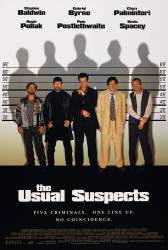
Question: How did Soze end up in the police station after he escaped the boat in the first place? If he had vanished after the bombing, he wouldn't have to make up the stories and he wouldn't have been identified by Kujan.
Answer: Kint/Soze ended up in the police station because he simply didn't get away in time.
Answer: Soze ended up back under arrest and for some questioning as 'Verbal Kint'. He never really vanished, he's just playing two parts/people. He really vanishes off the scene by the end of the movie after he tricks Kujan.
With the exception of what's known to have happened on the dock, the entire story is a lie told by Verbal Kint to Agent Kujon. Kujon realises this after Kint leaves the office but not in time to catch up. The entire movie is about a habitual liar making up a story about what happened on the dock. He may be Keyser Soze or an alter-ego variant but even Keysers rep is subject to question as it was told by the same liar. Verbal himself said about Keaton, "He was a grounded guy, a cop. If you think the husband did it then you're right." He was telling on himself as sociopaths will do when they think they're smarter than everyone around them.
Answer: All he had to do was kill them on the ship, blow it up, and leave. The whole BS story with the cops didn't even have to happen.
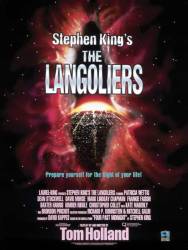
Question: Is there a reason why when they're in the past they can't catch up with the present, but when they land a little into the future, the present can catch up with them? Are they not moving along on their own timeline? And if not, why are they not left in that moment and stand there to see the present come and go without taking them?
Answer: Think of time as a gear with only one tooth, and think of them as a gear with only one notch. In the past, the one tooth has forever passed their notch and they'll never be carried along in the flow of time again. In the future, the tooth comes along, snags their notch, and they're back in the flow of time.
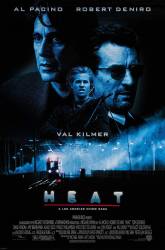
Question: In the scene right before the big bank heist, a detective comes into the situation room informing the team that a CI Hugh Benny had a tip about Neil McCauley looking at Far East National Bank. How the heck did Waingro (working for Benny and VanZandt) even know about this score? McCauley hadn't even discussed it with Kelso when Waingro took down the armored car.
Answer: Waingro helped Van Zandt track down Trejo. Waingro then tortured Trejo and threatened his family if he didn't give up McCauley. With his back to the wall, Trejo gave Waingro and Hugh Benny the details of the bank heist, but Waingro killed Trejo's family anyway and beat Trejo almost to death. Benny then gives the tip to the police on Van Zandt's order.
I wonder how Trejo was tracked, I don't remember his name being revealed during Waingro's time with the crew, or any other information.
Well, we never see the crew prior to their first heist. Trejo could have given Waingro his name during the planning of that heist.
Waingro met this crew only once. How would he know who Trejo is or where he lives? Right before the heist, Trejo is asked to mislead police away from the heist.
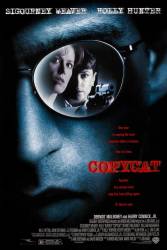
Question: Who is Conrad? Harry Conick, Jr.'s character writes him a letter at the end, and there is a Conrad character listed in the credits, but I haven't been able to find him.
Answer: I thought that it was Peter Kurten (Foley) that broke in and left the book. However if it was Conrad, then he does not appear in the flesh in the film.
You are correct. I just rewatched this tonight on Tubi.
Answer: Conrad is the man that breaks into Helen's flat and leaves the book. Happens just over 1 hour into the film.
Answer: I don't think Conrad appears in the film. Earlier in the movie HC Jr says he has other "disciples"; Conrad seems to be the new recruit to replace the just-killed McNamara character.
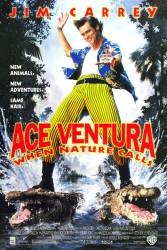
Question: Greenwall says that the warrior must stand on the tower for five days. Wouldn't he die of dehydration?
Answer: Not if somebody climbed up and gave him some water to drink.
Answer: As someone else said, somebody could give him water. The test might be more about staying in one place and denying himself the daily activities and pleasures of life - not having access to his usual amount of water and food.
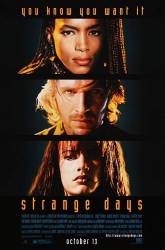
Question: While at the New Year party near the end, Mace tells Lenny that his clip of the Jerico One murder is the only one, and that there are no copies. Yet when Faith was explaining the situation earlier, we see Philo setting fire to a clip with the same content. Did I miss something?
Answer: The clip that Mace and Lenny have is a copy of the original that was made that Philo didn't know about. When he destroys the original by burning it, that leaves only the copy that was made and passed on to Lenny. He then has the only remaining copy, which is what Mace means.
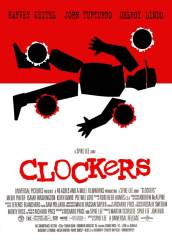
Question: Why did at the end of the movie did Rocco Klein let Strike leave town?
Answer: Because he found out Strike was innocent.
Answer: I've seen se7en hundreds of times, and I've always wondered what Mills was trying to say to Somerset, and here's my take. If you've noticed, the recurring theme between the two was their conflicting views on how they see the world around them. Somerset is the grizzled, experienced detective who has been through the ringer, so he's views are more pessimistic in nature. Which I can sympathize with. Mills being the rookie detective that he is, was the optimistic, "I'll be the hero" kind of guy. So much so that Somerset called him out for being too Naive, and that he can't be like that. So getting back to the question at hand. During the chest shaving scene, I believe Mills was about to tell Somerset that his dark pessimistic view of the world around them makes sense. Mills wanted to say that Somerset was right, which he wasn't able to bring himself to do.